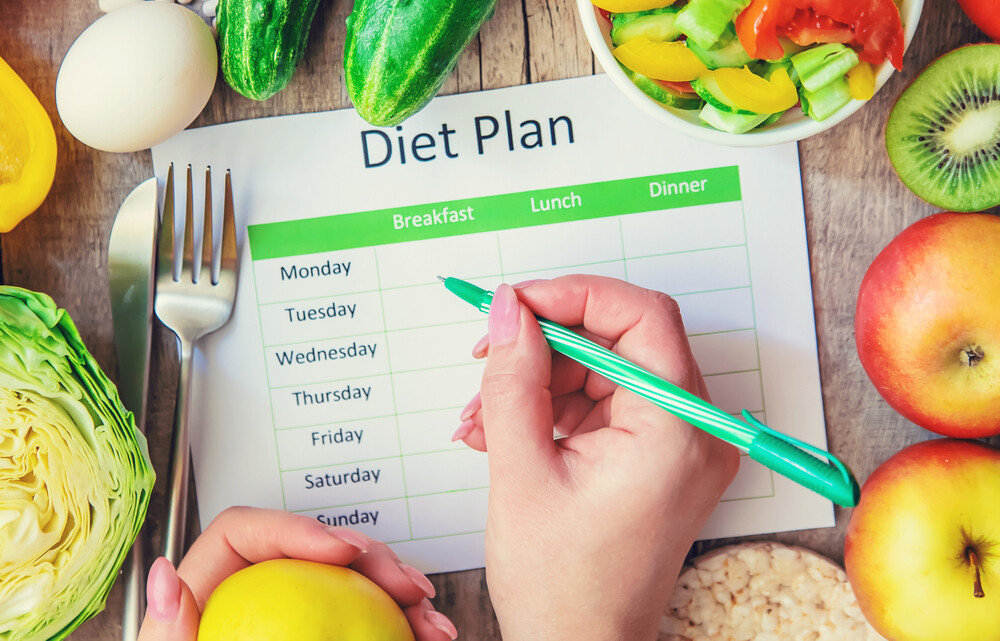Creating a vitamin-rich meal plan is not just about getting the right nutrients; it’s also about enjoying flavorful and diverse foods that support your overall health. This guide will walk you through the essential steps to design a balanced and nutrient-dense meal plan that meets your nutritional needs.
Understanding Vitamins and Their Importance
Before diving into creating a meal plan, it’s crucial to understand the role of vitamins in your diet. Vitamins are essential nutrients that your body needs in small amounts to function properly. They play various roles, from supporting immune function to aiding in energy metabolism and maintaining healthy skin and vision.
What are vitamins, and why are they important for health?
Vitamins are organic compounds that are essential for various biochemical processes in the body. They help regulate metabolism, convert food into energy, support immune function, and ensure proper growth and development.
Assessing Your Nutritional Needs
The first step in creating a vitamin-rich meal plan is to assess your individual nutritional needs. This involves considering factors such as age, sex, activity level, and any specific health conditions or dietary restrictions you may have.
How can I assess my nutritional needs before creating a meal plan?
Start by evaluating your current diet and lifestyle. Consider factors like your age, gender, activity level, and any health conditions you may have. You may also consult with a registered dietitian or healthcare provider for a personalized assessment.
Choosing Vitamin-Rich Foods
Building a meal plan centered around nutrient-dense foods ensures you get a wide range of vitamins. Focus on incorporating a variety of colorful fruits and vegetables, whole grains, lean proteins, and healthy fats into your meals.
Which foods are rich in vitamins that should be included in my meal plan?
nclude a variety of foods such as leafy greens (like spinach and kale), colorful vegetables (such as bell peppers and carrots), fruits (like berries and citrus fruits), whole grains (such as quinoa and oats), lean proteins (like chicken, fish, and tofu), dairy or dairy alternatives (such as yogurt or almond milk), and healthy fats (like avocados and nuts).
Building a Balanced Meal Plan
A balanced meal plan should include a combination of macronutrients (carbohydrates, proteins, and fats) and micronutrients (vitamins and minerals). Aim for meals that are not only nutritious but also enjoyable and satisfying.
How do I build a balanced meal plan that includes all the essential vitamins?
Plan meals that include a variety of food groups. For example, pair whole grains with lean protein and vegetables for lunch, and include a colorful salad with a variety of vegetables and a source of healthy fats for dinner. Snack on fruits or nuts for added vitamins and minerals throughout the day.
Considering Cooking and Preparation Methods
The way you prepare and cook your food can affect its vitamin content. Opt for cooking methods that preserve nutrients, such as steaming vegetables instead of boiling them or grilling lean proteins instead of frying.
What are the best cooking methods to preserve vitamins in foods?
Steaming, roasting, grilling, and sautéing are cooking methods that help retain vitamins in foods. Avoid overcooking vegetables and fruits, as prolonged exposure to heat can lead to nutrient loss.
Meal Planning and Prepping Tips
Meal planning and prepping can help you stay organized and ensure you have nutrient-rich meals readily available. Dedicate time each week to plan your meals, make a grocery list, and prep ingredients in advance for easy cooking during busy days.
How can I effectively meal plan and prep for a vitamin-rich diet?
Set aside time each week to plan your meals and snacks. Make a grocery list based on your meal plan and shop for fresh, seasonal produce and other nutritious ingredients. Prep ingredients such as chopping vegetables or cooking grains ahead of time to streamline meal preparation during the week.
Incorporating Supplements Wisely
While it’s best to obtain vitamins from whole foods, supplements can be useful if you have specific nutrient deficiencies or dietary restrictions. Consult with a healthcare provider before taking any supplements to ensure they are appropriate for your needs.
When should I consider taking vitamin supplements, and how do I choose the right ones?
Consider supplements if you have a diagnosed deficiency, follow a restrictive diet (e.g., vegan or gluten-free), or have increased nutrient needs due to certain health conditions. Always consult with a healthcare provider or registered dietitian before starting any supplements to determine which ones are necessary and safe for you.
Eating Out and Making Healthy Choices
Eating out doesn’t mean compromising your nutrient intake. Choose restaurants that offer healthy options, such as salads with lean protein, vegetable-based dishes, and whole grain options. Pay attention to portion sizes and cooking methods when dining out.
How can I make healthy choices when eating out to ensure I get enough vitamins?
Look for restaurants that offer a variety of nutritious options, such as salads, grilled or roasted proteins, and vegetable-based dishes. Opt for dishes that are steamed, baked, or grilled instead of fried. Ask for dressings and sauces on the side to control portions and reduce unnecessary calories.
Staying Hydrated
Water plays a crucial role in overall health and can enhance nutrient absorption. Aim to drink plenty of water throughout the day, and consider incorporating hydrating foods such as fruits and vegetables into your meals.
Why is staying hydrated important for nutrient absorption, and how much water should I drink daily?
Staying hydrated helps support digestion, nutrient absorption, and overall cellular function. The amount of water you need can vary based on factors like age, activity level, and climate. As a general guideline, aim to drink about 8 glasses (64 ounces) of water per day, or more if you’re physically active or in a hot environment.
Monitoring and Adjusting Your Meal Plan
Regularly assess how you feel and any changes in your health or energy levels. Adjust your meal plan as needed to ensure it continues to meet your nutritional needs and supports your overall well-being.
How often should I review and adjust my meal plan to ensure it’s meeting my nutritional needs?
Review your meal plan periodically, such as every few weeks or months, to evaluate how it’s working for you. Consider factors like energy levels, mood, and any changes in health or lifestyle. Make adjustments as necessary to ensure your meal plan continues to provide adequate vitamins and nutrients.
Conclusion
Creating a vitamin-rich meal plan involves thoughtful planning, diverse food choices, and a focus on nutrient density. By incorporating a variety of colorful fruits and vegetables, lean proteins, whole grains, and healthy fats into your meals, you can ensure you’re getting the essential vitamins your body needs to thrive. Whether you’re meal planning for yourself or your family, these strategies can help you enjoy delicious, balanced meals that support your overall health and well-being.
- NCTF 135 HA Near Ranmore, Surrey - May 24, 2025
- Sculptra Surrey – Collagen Stimulation Therapy Near Shirley, Surrey - May 23, 2025
- What Does 1ml Of Cheek Filler Look Like? - May 22, 2025




